Study Skills & Test Prep Mastering: Roadmap to Academic Success
Effective study skills and test preparation are essential components of academic success. Whether you’re preparing for an exam, writing a research paper, or tackling a challenging assignment, honing your study skills can help you maximize your learning potential and achieve your academic goals. In this comprehensive guide, we’ll explore the strategies and techniques that can help you master study skills and excel in test preparation.
Understanding Study Skills

1. Defining Study Skills
Study skills encompass a range of techniques and strategies that students use to enhance their learning and academic performance. These skills include time management, note-taking, active reading, critical thinking, organization, and effective study habits. By mastering study skills, students can improve their comprehension, retention, and application of knowledge across various subjects and disciplines.
2. Importance of Study Skills
Study skills are essential for academic success because they empower students to approach learning tasks systematically and efficiently. Effective study skills enable students to manage their time effectively, engage with course materials actively, and retain information more effectively. By developing strong study skills, students can become more self-directed learners and achieve better academic outcomes.
Mastering Study Skills

1. Time Management
Time management is a fundamental study skill that involves planning, prioritizing, and allocating time effectively to academic tasks. Effective time management techniques include creating a study schedule, setting realistic goals, breaking tasks into manageable chunks, and minimizing distractions. By managing their time wisely, students can balance their academic workload, meet deadlines, and reduce stress.
2. Note-Taking
Note-taking is a critical study skill that involves capturing and summarizing key information from lectures, readings, and other sources. Effective note-taking techniques include active listening, using abbreviations and symbols, organizing notes logically, and reviewing and revising notes regularly. By taking clear and concise notes, students can reinforce their understanding of course material and retain information more effectively.
3. Active Reading
Active reading is a study skill that involves engaging with written texts actively and critically. Effective active reading techniques include previewing texts, annotating key passages, asking questions, making connections, and summarizing main ideas. By actively engaging with reading materials, students can improve their comprehension, retention, and critical thinking skills.
4. Critical Thinking
Critical thinking is a study skill that involves analyzing, evaluating, and synthesizing information to make informed judgments and decisions. Effective critical thinking techniques include asking probing questions, examining evidence, identifying biases, and evaluating arguments. By developing critical thinking skills, students can become more independent and discerning learners.
5. Organization
Organization is a study skill that involves structuring and managing academic materials, resources, and information effectively. Effective organization techniques include creating a study space, organizing study materials, using planners or digital tools, and maintaining a tidy workspace. By staying organized, students can reduce clutter, minimize distractions, and focus on their academic tasks more effectively.
Exceling in Test Prep

1. Understanding Test Formats
Understanding the format and structure of different types of tests is essential for effective test preparation. Whether it’s multiple-choice, short-answer, essay, or open-book exams, students should familiarize themselves with the test format, instructions, and expectations to optimize their preparation strategies.
2. Creating a Study Plan
Creating a study plan is essential for effective test preparation. Students should identify the material covered on the exam, prioritize topics based on importance and difficulty, and allocate study time accordingly. A well-structured study plan ensures comprehensive coverage of the material and helps students stay organized and focused during their preparation.
3. Practicing Test-Taking Strategies
Practicing test-taking strategies is crucial for success on exams. Students should practice techniques such as time management, strategic guessing, process of elimination, and managing test anxiety. By familiarizing themselves with the test format and practicing test-taking strategies, students can improve their confidence and performance on exams.
4. Reviewing and Revising
Reviewing and revising materials are essential components of test preparation. Students should review class notes, textbooks, and other study materials systematically, focusing on key concepts and topics covered on the exam. Additionally, students should engage in active review techniques such as self-quizzing, summarizing, and concept mapping to reinforce their understanding and retention of the material.
5. Seeking Support and Resources
Seeking support and resources can enhance test preparation efforts. Students can benefit from seeking assistance from teachers, tutors, classmates, or online resources for clarification on challenging concepts, practice questions, or additional study materials. Additionally, students can utilize study aids such as flashcards, study guides, and practice tests to supplement their preparation efforts.
Unveiling the Advantages of Mastering Study Skills & Test Prep: Paving the Path to Academic Excellence

1. Enhanced Academic Performance
One of the primary advantages of mastering study skills and test preparation techniques is improved academic performance. By developing effective study habits, such as time management, note-taking, and active reading, students can optimize their learning process and retain information more efficiently. Similarly, thorough test preparation ensures that students are well-equipped to demonstrate their knowledge and understanding during exams, leading to higher grades and academic achievement.
2. Increased Retention of Material
Effective study skills enhance the retention of material by promoting active engagement with course content. Techniques like summarization, visualization, and self-testing help reinforce learning and commit information to long-term memory. As a result, students are better able to recall and apply key concepts, theories, and facts both in the classroom and in real-world contexts.
3. Reduced Test Anxiety
Test preparation techniques, such as familiarizing oneself with exam formats, practicing time management, and employing relaxation strategies, can significantly reduce test anxiety. When students feel confident in their ability to approach exams strategically and manage their time effectively, they are less likely to experience stress and perform better under pressure. By cultivating a sense of preparedness and control, mastering test prep techniques contributes to a more positive testing experience.
4. Improved Problem-Solving Skills
Engaging in active learning and critical thinking during study sessions helps students develop problem-solving skills that are essential for success in various academic and professional contexts. By dissecting complex problems, analyzing information, and synthesizing solutions, students sharpen their analytical abilities and become more adept at tackling challenges across disciplines. These problem-solving skills are invaluable assets that translate into success in both academic and real-world settings.
5. Enhanced Time Management
Mastering study skills inherently involves developing strong time management abilities. By creating structured study schedules, setting priorities, and allocating time efficiently, students learn to make the most of their available time and balance academic responsibilities with other commitments. Effective time management not only maximizes study productivity but also fosters a healthy work-life balance, reducing stress and promoting overall well-being.
6. Greater Self-Confidence
Proficiency in study skills and test preparation instills a sense of self-confidence and self-efficacy in students. As they witness the tangible results of their efforts through improved academic performance and successful exam outcomes, students gain confidence in their abilities to tackle new challenges and overcome obstacles. This increased self-assurance not only enhances academic success but also carries over into other areas of life, fostering resilience and a positive mindset.
7. Preparation for Future Success
Mastering study skills and test preparation techniques equips students with essential tools for lifelong learning and success. The ability to effectively manage time, absorb information, and perform under pressure are invaluable skills that are applicable in higher education, professional careers, and personal pursuits. By honing these skills early on, students lay a solid foundation for future academic and professional endeavors, setting themselves up for continued growth and achievement.
Conclusion
Mastering study skills and test preparation techniques is essential for academic success. By developing effective study habits, time management skills, and test-taking strategies, students can optimize their learning potential and achieve their academic goals. Whether it’s acing an exam, writing a research paper, or mastering a new subject, honing study skills and test preparation techniques is the key to success in education and beyond.











